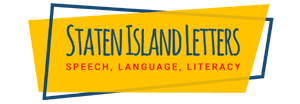Parents of children with learning differences are often faced with the decision of which type of evaluation will best meet the needs of their child. This decision is important to ensuring that a child is supplied with the interventions/supports that will provide the greatest potential for success.
A psychoeducational evaluation usually includes an assessment of a child’s social history, intellectual abilities, and basic academic skills (reading, mathematics, spelling) as well as a psychological screening. A psychoeducational evaluation typically includes 2-4 hours of formal testing, depending on the school and/or individual approach of the clinician. The results of this type evaluation usually provide enough information to identify specific learning disabilities/differences as well as to pick up on clear psychological distress that is affecting a child’s functioning. A psychoeducational evaluation does not provide the clinical or psychometric data required to reliably capture cognitive difficulties associated with attention or executive functioning weaknesses (e.g., ADHD), Autism Spectrum Disorder, or more subtle psychological/social difficulties. This type of evaluation will provide recommendations for very general learning and counseling support.
A neuropsychological evaluation includes a detailed investigation of a child’s developmental, medical, social, and psychological history and an extensive testing battery that examines a child’s intellectual, academic, attention, executive functioning, language, visuospatial, visuoconstructional, memory, and fine motor skills. A detailed investigation of a child’s psychological/social functioning that includes both a clinical interview and a series of standardized parent, teacher, and self-report measures (if appropriate) is completed. This type of evaluation typically includes anywhere from 6 to 12 hours of testing. For many children, the inclusion of a direct classroom observation period is ideal and should be provided. The results of a neuropsychological evaluation are intended to identify not merely any intellectual or learning differences, but also any other cognitive or psychological difficulty that may be contributing to a child’s profile (e.g., language disorder, fine motor difficulties, attention problems). Data obtained in a neuropsychological evaluation will provide the information needed to generate a very comprehensive description of the child s learning and support needs. This description should be used to identify the specific learning/therapeutic interventions that will work best to support the explicit needs of the child.
Dr. Lindsay Whitman conducts comprehensive neuropsychological assessments with children, adolescents, and young adults (ages 4-21). A neuropsychological evaluation is most helpful to parents who suspect that their child or teen may be struggling with a learning difference, developmental delay, intellectual disability, or is experiencing difficulty with memory, attention, or executive functioning skills (organization, planning). This type of comprehensive evaluation may also be helpful for children who may be struggling with behavioral, social, and/or psychological difficulties (anxiety, depression) that seem to be interfering with cognitive and/or academic functioning. Neuropsychological evaluations may be indicated for a child or adolescent in whom the reason for difficulty is largely unclear.
